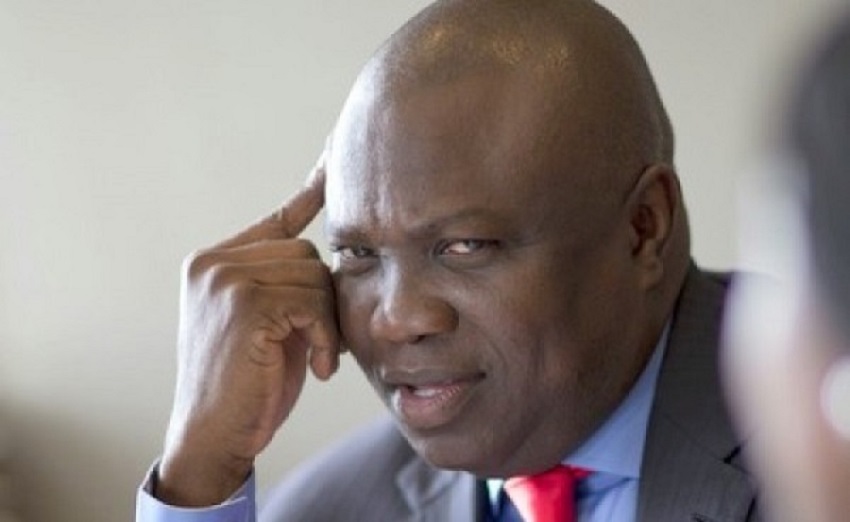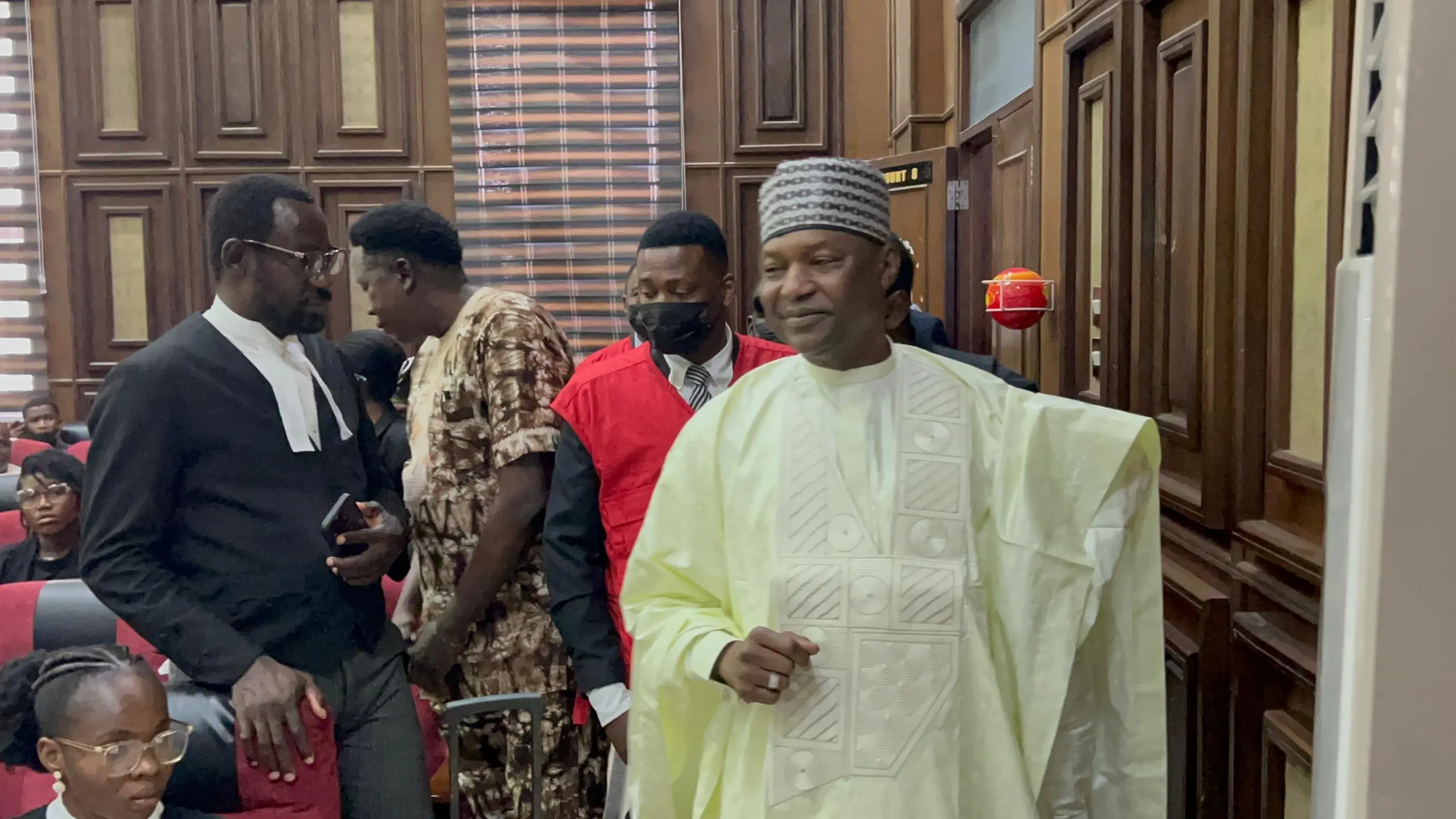General
No Plans to Put Pastors, Imams on Salary—Lagos

By Modupe Gbadeyanka
The Lagos State government on Tuesday debunked viral report on the social media suggesting that it was planning to commence paying salary to religious leaders in the State, saying the claim was totally untrue and misleading.
Commissioner for Home Affairs, Mr Abdulateef Abdulhakeem, who made the clarification while speaking on a television programme monitored in Lagos, said there was no iota of truth in the said report, and urged members of the public to disregard it in its entirety.
“The clear position is that the Lagos State Government is not intending to employ Imams and Pastors. There is no such plan and there is no willingness on our part to delve into a private realm.
“What exists in Lagos State is that there is a symbiotic relationship between the Lagos State Government and faith-based organizations and it is a mutually beneficial relationship which has contributed to the growth and development of the State,” Mr Abdulhakeem said.
In the said report, Mr Abdulhakeem was quoted as saying that the State Government would soon place religious leaders on the State salary structure to encourage them to use their Pulpit and the Minbar to re-orientate citizenry to shun corruption and immorality.
Clarifying his statement, the Commissioner said: “I must have been misunderstood or misquoted. We were at a forum where we were trying to encourage religious leaders to be advocates against corruption because religious leaders have millions of adherents and they enjoy the allegiance of millions of followers and we expect them to use the Pulpit and the Minbar to advocate for good governance and selflessness so that they can influence their members positively.
“In Lagos State, one of the remarkable successes of the present administration is that we have cutting-edge approaches to relating with religious leaders and that is why Lagos remains the most peaceful and most religious crisis-free State in the federation inspite of our cosmopolitan nature.”
Already, the Commissioner said a structured approach had been put in place to relate with religious leaders in the State through the Nigeria Inter-Religious Council (NIREC) which consists of people nominated by the Christian Association of Nigeria (CAN) and the Muslim Community across the 57 Local Councils in the State.
According to him, “We have them at the State level; they meet regularly in the Home Affairs and instead of leaving them as dysfunctional silos, we ensure that there is an integrated approach.
“They meet regularly to interact on religious issues and the Governor, Mr Akinwunmi Ambode has even further decentralized that whereby over 700 of them were appointed based on their nominations and they are volunteers who are not paid anything. They come together to nip religious crisis at the bud,” he said.
He added that the general approach of the State Government to religion was that of rule of law, good governance, constitutional democracy and more than anything, the observance and preservation of the fundamental human rights of Lagosians to freely practice their religion.
“Section 38 of the Constitution is very clear and explicit that every person is entitled to freedom of thought, conscience and religion including the freedom to change your religion and the freedom to either alone or in community with others practice, manifest and propagate your religion. Clearly, that is unequivocally telling you that religion is a private affair as far as the Lagos State Government is concerned,” Mr Abdulhakeem said.
Responding to a question on why the State Government was yet to implement a Court of Appeal judgment on the use of Hijab by school girls, Abdulhakeem said being a government which firmly believes in rule of law, the State Government was awaiting the pronouncement of the Supreme Court on the matter which, he said, was already before the apex court.
On taxes, the Commissioner said though religious institutions were exempted according to the State laws, but any religious body which engages in commercial activities was liable to pay tax.
“Religious institutions are not taxable under the Lagos laws but where religious institutions engage in business transactions like schools and so on, then such are liable to pay taxes but as far as the institution is concerned, it is exempted from paying tax.
“Also, those who convert their buildings into Mosque to avoid paying taxes, we have made it abundantly clear that you are not allowed to convert residential premises into religious centres. So, people should just respect God the way the Lagos State Government has respected God and do not come under that arena to avoid payment of taxes,” he said.
Besides, the Commissioner said the State Government had already embarked on massive enlightenment and re-orientation against noise pollution by religious leaders, but any resident who is affected by such should however report either through the Lagos State Environmental Protection Agency (LASEPA) or the Ministry of Home Affairs for action.
General
EFCC Re-Arraigns ex-AGF Malami, Wife, Son Over Alleged Money Laundering

By Adedapo Adesanya
The Economic and Financial Crimes Commission (EFCC) has re-arraigned former Attorney-General of the Federation (AGF), Mr Abubakar Malami (SAN), his wife, Mrs Asabe Bashir, and son, Mr Abdulaziz Malami, on money laundering charges.
They were brought before Justice Joyce Abdulmalik of the Federal High Court in Abuja, following the re-assignment of the case to the new trial judge.
Upon resumed hearing, EFCC’s lawyer, Mr Jibrin Okutepa (SAN), informed the court that the matter was scheduled for defendants’ re-arraignment.
“The matter is coming before your lordship this morning for the very first time. I will be applying for the plea of the defendants to be taken,” he said.
Mr Okutepa equally applied that the sums listed in Counts 11 and 12 be corrected to read N325 million instead of N325 billion for Count 11, and N120 million instead of N120 billion for Count 12.
When it was not opposed by the defence lawyer, Mr Joseph Daudu (SAN), Justice Abdulmalik granted the oral application by Mr Okutepa.
The defendants, however, pleaded not guilty to the 16 counts preferred against them by the anti-graft agency bordering on money laundering.
Justice Obiora Egwuatu had, on February 12, withdrawn from the case shortly after the civil case filed by the EFCC was brought to him.
The case was formerly before Justice Emeka Nwite, who sat as a vacation judge during the Christmas/New Year break.
After the vacation period, the CJ reassigned the cases to Justice Egwuatu, who had now recused himself, before it was reassigned to Justice Abdulmalik.
The former AGF, his wife, and son were earlier arraigned before Justice Nwite on December 30, 2025.
While Malami and his son were remanded at Kuje Correctional Centre, Asabe was remanded at Suleja Correctional Centre before they were admitted to N500 million bail each, on January 7, with two sureties each in the like sum.
General
INEC Shifts 2027 Presidential, N’Assembly Elections to January 16

By Adedapo Adesanya
Nigeria will hold next year’s presidential and National Assembly elections a month earlier than planned, after the Independent National Electoral Commission (INEC) revised the polling schedule.
The elections will be held on January 16, instead of the previously announced date of February 20, INEC said in an X post, signed by Mr Mohammed Kudu Haruna, National Commissioner and Chairman, Information and Voter Education Committee.
There were also changes to the Governorship and State Houses of Assembly elections initially fixed for Saturday, March 6 2027, in line with the Electoral Act, 2022, have now been moved to Saturday, February 6, 2027.
The electoral commission said the changes were caused by the enactment of the Electoral Act, 2026 and the repeal of the Electoral Act, 2022, which introduced adjustments to statutory timelines governing pre-election and electoral activities.
“The Commission reviewed and realigned the schedule to ensure compliance with the new legal framework,” it said.
INEC said party primaries (including resolution of disputes) will commence on April 23, 2026 and end on May 30, 2026, after which Presidential and National Assembly campaigns will begin on August 19, 2026, while Governorship and State Houses of Assembly campaigns will begin on September 9, 2026.
It noted that campaigns will end 24 hours before Election Day, and political parties have been advised to strictly adhere to the timelines.
INEC also stated it will enforce compliance with the law.
The electoral body also rescheduled the Osun Governorship election which was earlier scheduled for Saturday, August 8 2026, by a week to Saturday, August 15, 2026.
INEC noted that some activities regarding the Ekiti and Osun governorship elections have already been conducted, and the remaining activities will be implemented in accordance with the Electoral Act, 2026.
Speaking at a news briefing in Abuja two weeks ago, the chairman of INEC, Mr Joash Amupitan, expressed the readiness of the commission to conduct the polls next year.
The timetable issued by the organisation for the polls at the time came when the federal parliament had yet to transmit the amended electoral bill to President Bola Tinubu for assent.
Later that week, the Senate passed the electoral bill, reducing the notice of elections from 360 days to 180 days, while the transmission of results was mandated with a proviso.
General
NIMASA Rallies Stakeholders’ to Develop National Action Plan

By Adedapo Adesanya
The Nigerian Maritime Administration and Safety Agency (NIMASA) has pledged its commitment to provide the regulatory leadership, technical coordination, and stakeholder engagement required to successfully develop and implement a robust National Action Plan on maritime decarbonization in Nigeria.
The Director General of the agency, Mr Dayo Mobereola, made this known during the National Stakeholders’ workshop on the development of a National Maritime Decarbonization Action Plan, further describing the workshop as a critical step in actualising the Federal Government’s blue economy and climate objectives.
Represented by the Executive Director, Operations, Mr Fatai Taiye Adeyemi, the NIMASA DG underscored the significance of the IMO GreenVoyage2050 Project, a technical cooperation initiative /designed to support developing countries in implementing the IMO GHG Strategy.
According to him, the National Action Plan being developed will reflect national realities, leverage existing capacities, address identified gaps, and align with broader economic and environmental priorities of the federal government.
Mr Mobereola stressed that “this transition is not merely about compliance with international obligations, it is about safeguarding our marine environment, protecting public health, strengthening the blue economy, and ensuring that our maritime industry remains competitive and future-ready”, the DG said.
Also speaking at the event was the Technical Manager of the IMO GreenVoyage2050 Project, Ms Astrid Dispert, who highlighted that the overarching objective of the initiative is to advance a coherent and globally aligned regulatory framework to accelerate maritime decarbonization.
She also emphasised that NIMASA plays a pivotal role in driving the project at the national level.
The IMO GreenVoyage2050 Project provides technical expertise and institutional support to assist countries in developing and implementing National Action Plans that promote sustainable shipping practices, encourage investment in clean technologies, and strengthen capacity for long-term emissions reduction.
Through this collaboration, the federal government is advancing deliberate steps towards maritime decarbonization, reinforcing its commitment to global climate goals and ensuring a cleaner, greener, and more sustainable future for the sector.
-

 Feature/OPED6 years ago
Feature/OPED6 years agoDavos was Different this year
-
Travel/Tourism10 years ago
Lagos Seals Western Lodge Hotel In Ikorodu
-

 Showbiz3 years ago
Showbiz3 years agoEstranged Lover Releases Videos of Empress Njamah Bathing
-

 Banking8 years ago
Banking8 years agoSort Codes of GTBank Branches in Nigeria
-

 Economy3 years ago
Economy3 years agoSubsidy Removal: CNG at N130 Per Litre Cheaper Than Petrol—IPMAN
-

 Banking3 years ago
Banking3 years agoSort Codes of UBA Branches in Nigeria
-

 Banking3 years ago
Banking3 years agoFirst Bank Announces Planned Downtime
-

 Sports3 years ago
Sports3 years agoHighest Paid Nigerian Footballer – How Much Do Nigerian Footballers Earn












